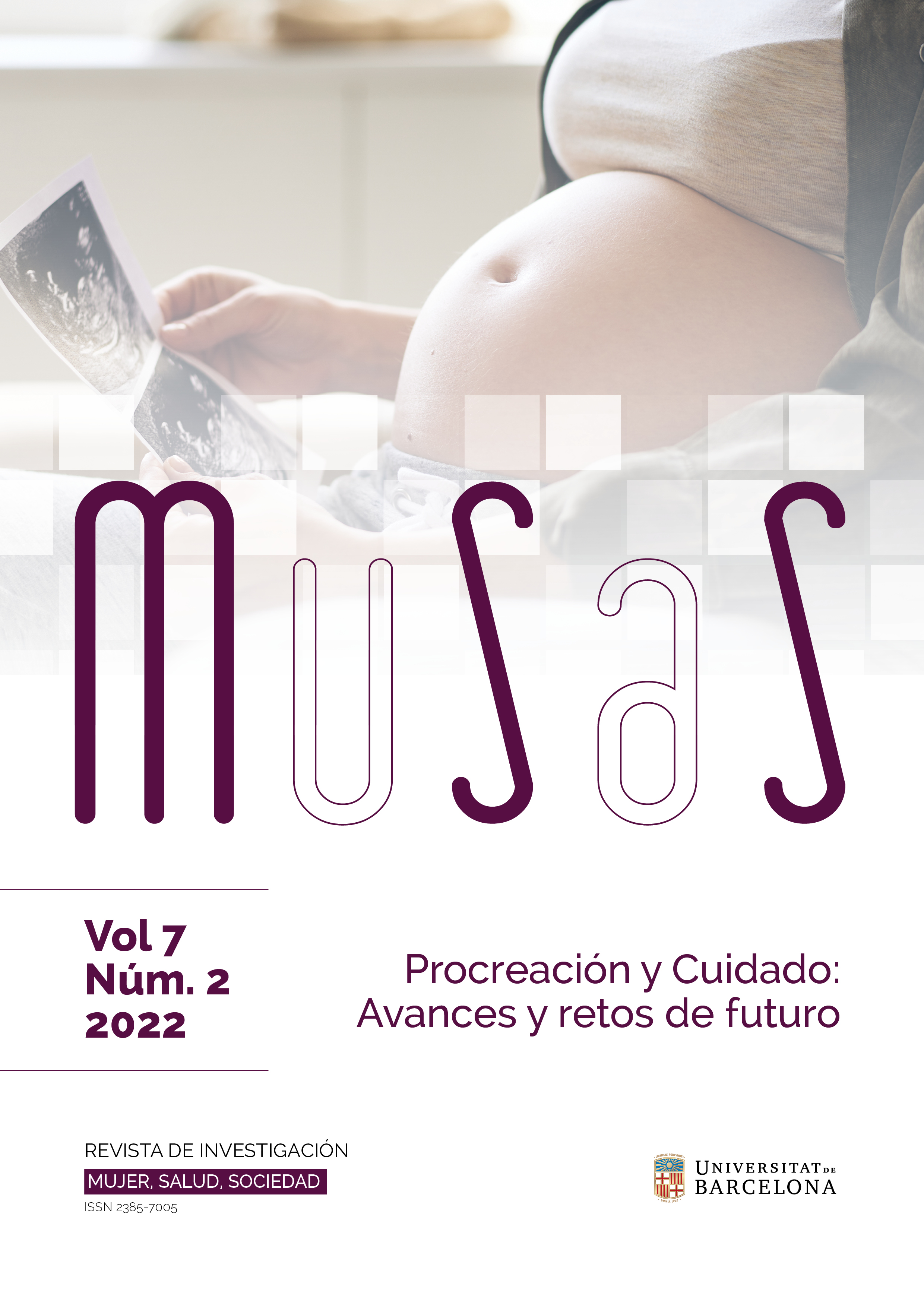Maternity Experiences of Executive Women from Metropolitan Lima: A Qualitative Study
DOI:
https://doi.org/10.1344/musas2022.vol7.num2.1Keywords:
Experience, Gender Studies, Maternity, Executive WomenAbstract
Objective. To explore the maternity experience of executive women in Lima Metropolitana. Methodology. The study has a phenomenological qualitative approach which allows to deepen how women with high business positions try to achieve balance between work and family life. There were 7 participants, and the data was obtained through recorded semi-structured interviews, with the prior consent of the mothers. Results. The data analysis was analyzed under the phenomenological design, which determined that the motherhood experience of these women is characterized by the presence of feelings of guilt along with unconditional love towards their family and children. Likewise, the mothers in this study have auxiliary agents that allow them to harmonize work and family. On the one hand, their partners, who maintain an active role in the upbringing of children and domestic work; on the other hand, the external support of nannies, who are usually hired to carry out tasks traditionally assigned to women. In turn, it was determined that there are contextual characteristics that facilitate the balance between family life and work, such as, for example, that their work centers have flexible policies, allowing them a certain freedom over the execution and distribution of their time. Conclusions. For a more equitable professional development of women, a more equitable distribution of responsibilities is required. Just as work centers increasingly have more measures to reconcile motherhood with work.
Downloads
Published
Issue
Section
License
Authors publishing in this journal agree with the following terms:
- Authors hold the copyright, but MUSAS holds the right of first publication.
- Manuscripts will be disseminated with the Creative Commons CC BY-NC license, which allows sharing it with third parties as long as they recognize the authorship, the first publication right held by MUSAS and the license’s conditions






